On a fineTuesday morning in April I set out from the Sleep Inn in Beaufort, South Carolina in my sturdy black rented Toyota. I was headed for a spot I’d wanted to visit for years. I speak of a place with a fascinating reputation— St. Helena Island— some eight miles to the east. I was excited to finally be on my way.
St. Helena Island is one of the splendid ‘Sea Islands’ in the South Carolina Lowcountry. I chose that spot because it was a great favorite of the late Pat Conway, a local son, teacher and a writer whose work I admire. But more than that — St. Helena is the cultural center of a fascinating group known as the Gullah Geechee, or simply, the Gullah.
The gorgeous picture above is from the book Gullah Images: The Art of Jonathan Green, by Pat Conroy. In a nutshell, the present-day Gullah are the descendants of slaves brought to Charleston from West and Central Africa, in the 17th and 18th centuries. These slaves brought many skills with them, chief among them was the cultivation of rice. For many generations the Gullah labored in large, white-owned rice plantations.
During the Civil War many plantation owners fled in terror of the Union Army, essentially abandoning the land to its slaves. Many of these chose to stay put, and eventually gained legal ownership of this area— a fortunate turn of events— in keeping with Martin Luther King’s idea of the arc of the moral universe bending toward justice.
Happily, the Gulla were soon freed— in fact, they were the first freed slaves in America. I was touched to learn that the Gullah have since come to thrive in this lovely place; indeed, they have become a unique, dignified and prosperous community.
One more thing: I’d heard that Gullah cooking is terrific— and I wanted to have lunch at the only eatery in town, the esteemed Gullah Grub, 877 Sea Island Parkway. Its website declares, “Barbecue rules at this porch-fronted cafe specializing in Lowcountry African-American cooking.”
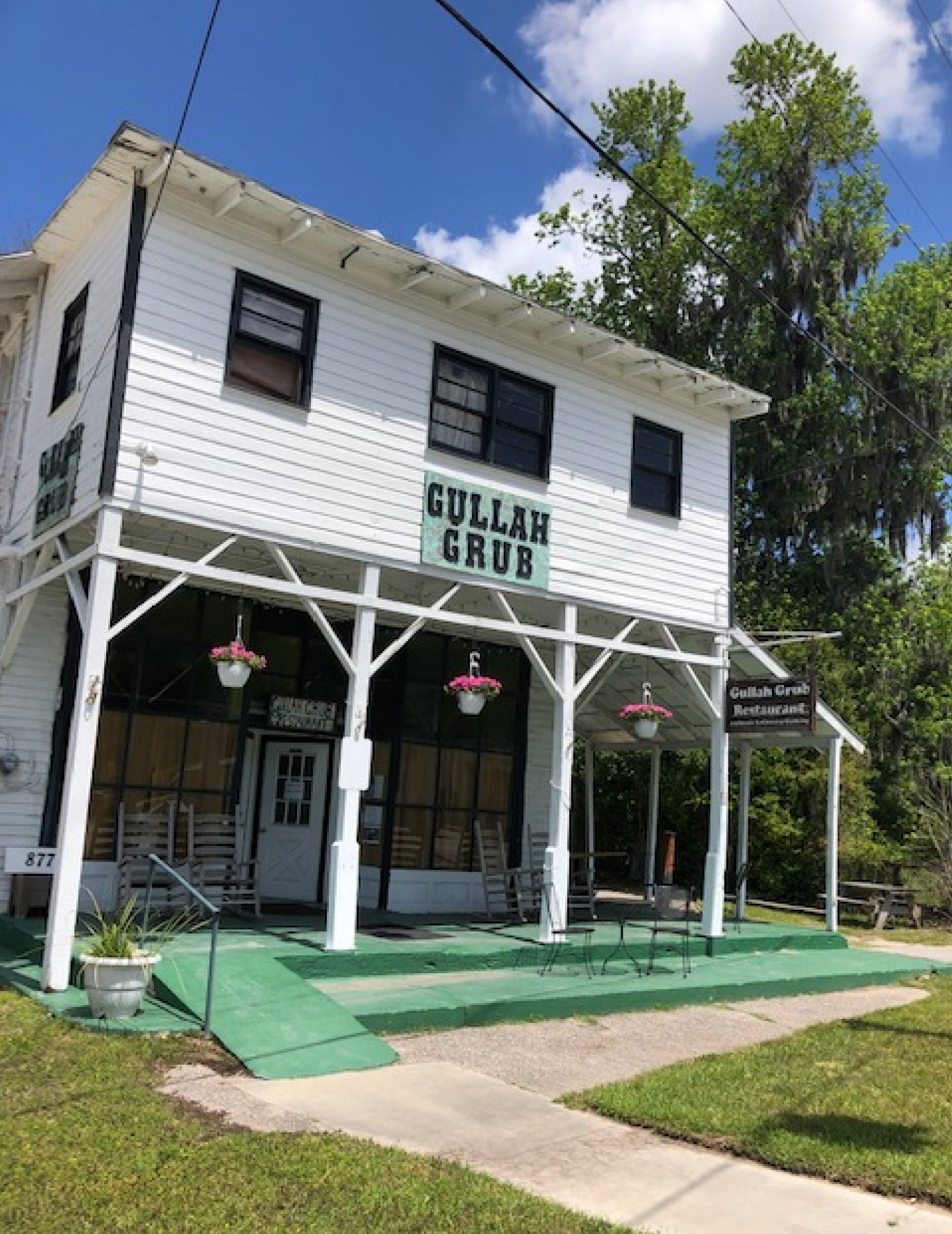
Specialties include shrimp gumbo, grits, collard greens, ribs and fried shark. They mention peach cobbler for dessert, and a mysterious drink called swamp water. This all sounded yummy to me. This clearly promised to be a memorable place for this travel-weary lad to recharge.
But sadly, I had failed to note on the website that the Gullah Grub is closed on Tuesdays, so my gastronomic hopes were unceremoniously dashed. I then remembered with alarm that I had skipped breakfast— in preparation for a big feed of, say, shark steak, grits and collard greens.
So, strenuously attempting to subdue my hunger, I crossed the street and entered LyBensons’ Gallery, Est.1977. I chatted a while with the amiable staff, surveyed some very appealing art, and bought a Gullah cookbook for my wife. You might call that a pretty good ‘Plan B’.
The local language, incidentally, is called Gullah Geechee, and it’s an English-African creole. I asked the gallery owner to speak to me in it, and found it easy to understand and very pleasant to my ear. He was most gracious in answering my myriad nosey questions. If it weren’t for being starved, I would have talked to him all afternoon.
In any case, I then headed back toward Beaufort in search of emergency sustenance. As I drove through the swirling blue-green glory of the South Carolina Lowcountryside, I thought wistfully that missing out on the Gullah Grub provided a fine excuse for a return visit.
But I won’t come on a Tuesday– and I’m thinking a proper reservation might be in order.

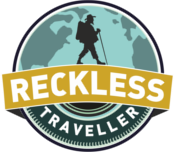
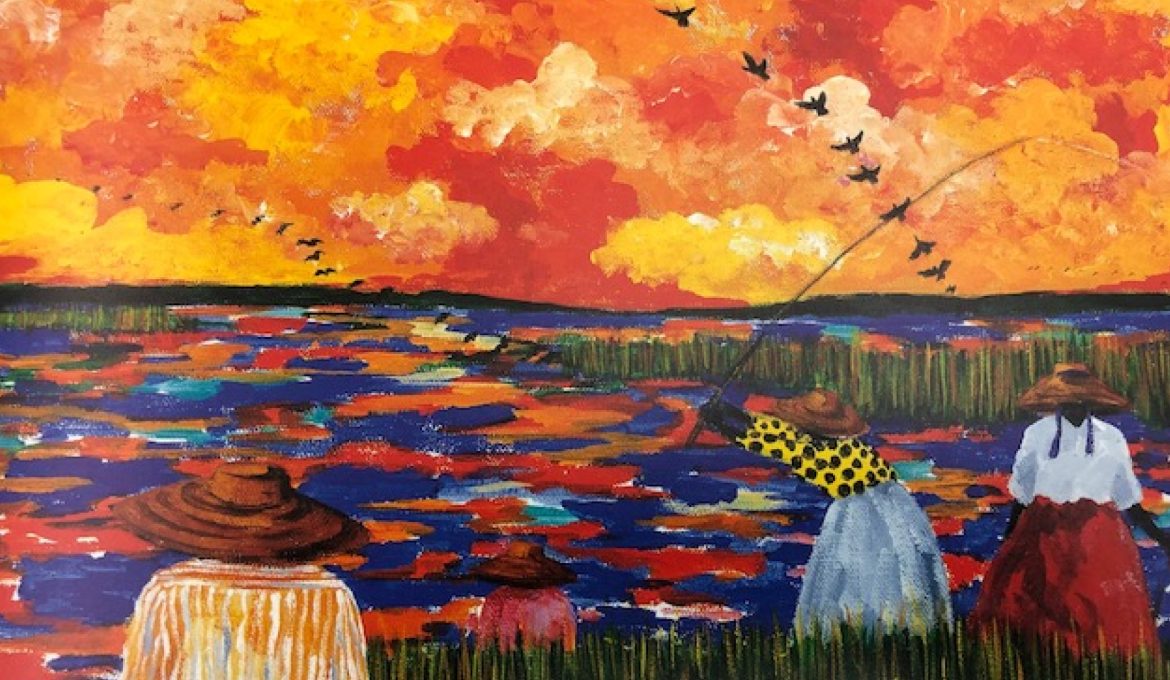
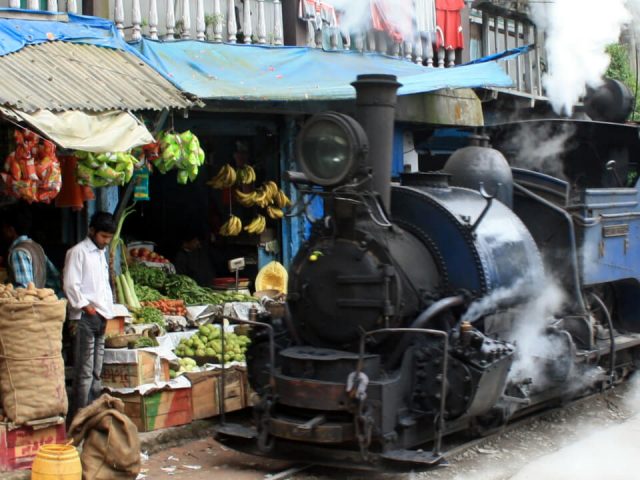
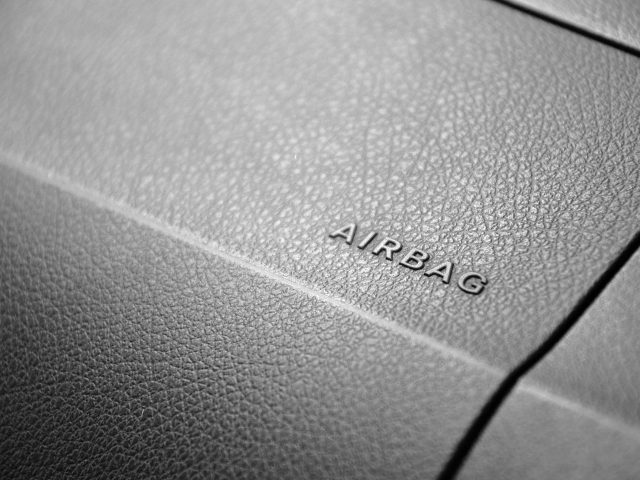
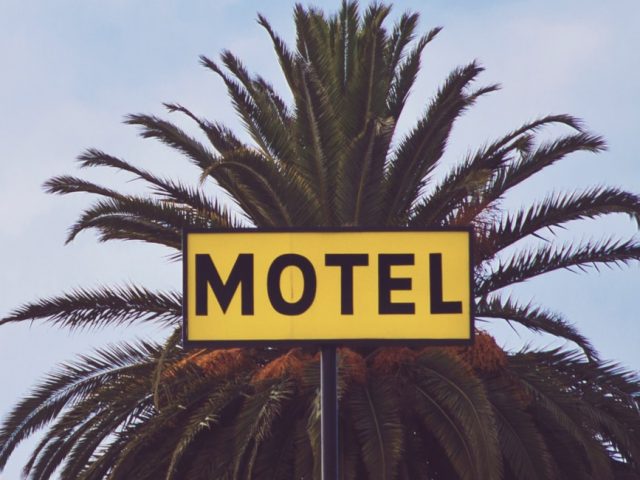
Facebook Comments